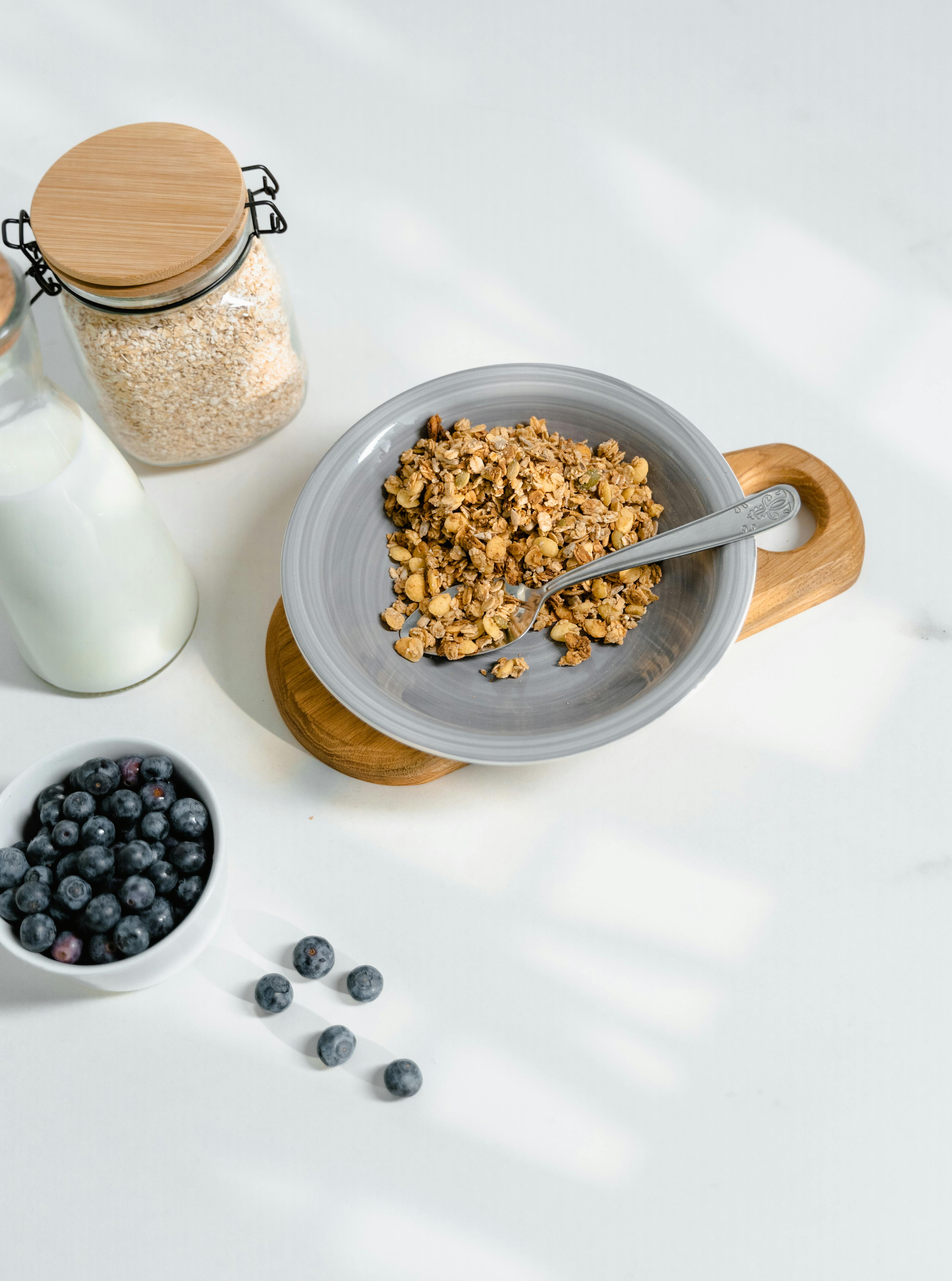Effective 30-Day Plant-Based Diet Plan to Improve Your Health

Essential 30-Day Plant-Based Diet Plan for Better Health
Adopting a plant-based diet can profoundly enhance your overall health and well-being, making it an excellent choice for those seeking a lifestyle shift. This comprehensive guide offers a 30-day meal plan tailored to maximize nutrients, introduce delicious vegan meals, and promote mindful eating habits. By focusing on whole foods, plant proteins, and effective meal prep techniques, you'll learn how to make the transition smoothly and enjoyably.
Throughout this article, we will emphasize the importance of combining a variety of fruits and vegetables with other nutrition essentials. This holistic approach aims to improve energy levels, support weight management, and contribute to long-term heart and gut health.
Not only will you discover scrumptious recipes and snack options, but we'll also cover key topics such as dietary fiber, hydration, and how to navigate the supermarket while reading food labels effectively. By the end of this journey, you will have comprehensive resources like grocery lists, seasonal eating tips, and cooking techniques that promote sustainability and health. Let's dive into the fundamentals of your plant-based experience!
How to Start Your Plant-Based Journey
Understanding Plant-Based Diets
A plant-based diet primarily consists of foods derived from plants, including fruits, vegetables, nuts, seeds, oils, whole grains, legumes, and beans. It's essential to note that this doesn't necessarily mean you have to be entirely vegan or vegetarian. The transition can be personalized based on dietary preferences, lifestyle, and health goals.
The health benefits of a plant-based diet are numerous, from improved heart health and weight loss to enhanced energy levels. Moreover, the dietary focus on whole foods helps mitigate the risks associated with processed foods. With an emphasis on plant proteins and healthy fats, incorporated through various snacks and meals, the advantages are substantial.
Creating a Balanced Meal Plan
To get the most out of your 30-day plan, balance is key. Focusing on macronutrients (proteins, fats, and carbohydrates) and micronutrients (vitamins and minerals) will help ensure your body receives everything it needs. Aim for a combination of legumes, whole grains, and seasonal produce, providing a flavorful and colorful array of options.
Start meal planning by considering the proteins and fiber included in your meals, like chickpeas in salads or lentils in soups. Use a template to sketch out meals, keeping track of your cravings and adjusting as necessary.
Key Cooking Techniques for Beginners
Cooking methods can significantly impact the flavor and nutritional value of your meals. Baking, steaming, sautéing, and grilling are excellent options that preserve vital nutrients while still delivering fantastic flavors. Incorporate culinary herbs and spices to enhance your meals further and experiment with homemade sauces, dressings, and toppings for added creativity!
For those looking to save time, consider batch cooking and food storage techniques that keep meals ready and nutritious throughout the busy week.
Essential Ingredients for Your Plant-Based Pantry
Plant Proteins to Include
Diverse sources of plant proteins are crucial for meeting your dietary needs. Include options such as beans, lentils, tofu, tempeh, seitan, and edamame. These protein sources can easily replace animal proteins in a variety of recipes, from burgers to smoothies.
Additionally, whole grains like quinoa, brown rice, and farro can serve not only as fantastic carbohydrate sources but also contribute essential nutrients to your plant-based meals.
Healthy Fats from Plant Sources
Healthy fats play a critical role in nutrient absorption and hormone production. Incorporate plant fats such as avocados, nuts, seeds (like flaxseeds, chia seeds, and hemp seeds), as well as oils like olive oil and coconut oil. These can add satisfying textures and flavors to your meals, making the eating experience more enjoyable.
Superfoods and Seasonal Produce
Include superfoods like kale, spinach, sweet potatoes, and berries—powerhouses that can boost your nutrition and overall health. Pay attention to seasonal produce to ensure you're getting the freshest ingredients. Not only is local produce often tastier, but it is also frequently more cost-effective.

Effective Meal Prep Strategies
Creating Grocery Lists and Budgeting
Start your plant-based journey with a well-thought-out grocery list. Planning your meals in advance allows for cost-effective shopping and minimizes food waste. Focus first on the fresh fruits and vegetables available at your local farmers market, then supplement with pantry staples.
Utilize pantry items as the base for your meals while saving your budget for more premium fresh ingredients. Consider participating in community support to share resources and shopping tips.
Meal Timing and Portion Control
Understand the significance of meal timing and portion control in achieving your health goals. Try dividing your daily intake into smaller, well-balanced meals, which can help regulate your metabolism and manage cravings.
Monitor your plate sizes and adopt mindful eating practices to savor each bite and recognize when you are satisfied. Cooking for one or meal deliveries may also simplify your meal planning efforts.
Exploring Quick Snack Options
During your plant-based journey, it’s essential to have healthy snacks on hand to stave off hunger. Consider prepping options like homemade energy balls, sliced fruits with nut butter, or delightful veggie sticks paired with hummus. Plant-based snacks not only keep your energy up, but they also ensure you receive vital nutrients between meals.

Maintaining a Successful Plant-Based Lifestyle
Mindful Eating Practices
Mindfulness plays a crucial role in enhancing your relationship with food. Engaging with your meals without distractions can promote better digestion and satisfaction. Think about the textures, flavors, and colors of each dish, aiming to foster gratitude for your meals and the nourishment they provide.
Dining Out on a Plant-Based Diet
Social gatherings and dining out should still be enjoyable opportunities to explore food diversity. When eating out, research menus in advance, ask for modifications, and be sure to communicate any dietary restrictions. This awareness allows you to enjoy cuisine while adhering to your plant-based lifestyle.
Tracking Progress and Engaging with Community Support
As you progress through your 30-day plan, consider keeping a food diary or using apps to track your meals. Regular evaluation can offer insights into how your dietary changes affect your health, energy levels, and overall enjoyment. Be active in local or online communities that share plant-based goals, which can provide motivation and inspiration for continuing your journey.
Q&A: Your Plant-Based Diet Questions Answered
Q: How do I ensure I’m getting enough protein on a plant-based diet?
A: Incorporate various protein sources like legumes, tofu, tempeh, and whole grains. These foods collectively provide all essential amino acids.
Q: Will I miss meat after transitioning?
A: While there may be an adjustment period, experimenting with meat alternatives and new flavors can provide satisfying substitutes over time.
Q: Are there any nutritional supplements I should consider?
A: Some individuals may benefit from supplements like vitamin B12, omega-3 fatty acids, or vitamin D depending on dietary restrictions.
Q: How can I manage cravings for non-plant-based foods?
A: Focus on nutritious alternatives and incorporate more variety into your meals to help overcome cravings. Finding healthy swaps can ease the transition.
Q: How do I make cooking more enjoyable?
A: Experiment with new recipes, cooking techniques, and local ingredients. Engaging with the community through culinary classes can also enhance your skills.
In conclusion, the journey to a plant-based diet can be rewarding and nourishing. Focus on exploring flavors, maintaining nutritious meals, and engaging with supportive communities to enhance your experience!
By following these guidelines and utilizing the provided resources, you'll turn your plant-based intentions into a lifestyle that promotes health, vitality, and joy.